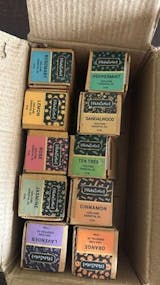Lactic acid is alpha hydroxy acid often used in skin care products to exfoliate dead skin cells and improve skin texture. For eczema, lactic acid can be beneficial in several ways.

It helps moisturize the skin, reduce inflammation, and improve its barrier function. Additionally, lactic acid can help to reduce the appearance of hyperpigmentation, which can be a common issue for those with eczema. Keep reading this blog to find out the benefits and uses of lactic acid for eczema.
What Is Eczema?
Eczema, or atopic dermatitis, is a common skin condition that causes inflammation, redness, dryness, and itching. It is believed to be caused by genetic and environmental factors, such as a weakened skin barrier, immune system dysfunction, and exposure to irritants.

Eczema can occur at any age but often begins in childhood and can persist into adulthood. It can be controlled using proper moisturizers, other medications, and products with lactic acids.
Why Choose Lactic Acid For Eczema?
For several reasons, lactic acid can be a good choice for those with eczema. First, it is a gentle exfoliant that can help remove dead skin cells and smooth rough, dry patches. This can be especially helpful for those with eczema, as the condition can cause a buildup of dead skin cells that can exacerbate symptoms.

Additionally, lactic acid has humectant properties, which means it can help to moisturize the skin by attracting and retaining water. This can benefit those with eczema, as the condition can cause dry, itchy, and cracked skin. Lactic acid has also been shown to have anti-inflammatory properties, which can help to reduce redness and inflammation associated with eczema.
Can We Use Lactic Acid For Baby Eczema?
Babies and young children have delicate and sensitive skin that can quickly become irritated, and their skin barrier function is not yet fully developed, making them more prone to skin damage and inflammation.

While lactic acid is generally considered safe for adults, it is important to be cautious when using any new skincare product on babies or children. A dermatologist or paediatrician can help determine if lactic acid is appropriate for a baby's eczema and provide guidance on safe and effective treatment options.
Benefits Of Lactic Acid For Eczema
Lactic Acid is a great natural exfoliant and moisturizes any dry patch or rough skin. It makes the skin smooth and has various benefits. A few of its benefits are:

1. Exfoliation: Lactic acid is a gentle exfoliant that helps remove dead skin cells, which can benefit those with eczema. The condition can cause a buildup of dead skin cells, exacerbating symptoms such as dryness and itching.
2. Moisturization: Lactic acid has humectant properties, which means it can help to moisturize the skin by attracting and retaining water. This can be particularly helpful for those with eczema, as the condition can cause dry, itchy, and cracked skin.
3. Anti-Inflammatory Properties: Lactic acid has been shown to have anti-inflammatory properties, which can help to reduce redness and inflammation associated with eczema. This can provide relief from the uncomfortable symptoms of eczema.
4. Improves Skin Barrier Function: Lactic acid has been shown to help improve the skin's barrier function, which is important for those with eczema. The condition can weaken the skin's barrier, making it more vulnerable to irritants and allergens. Lactic acid can help protect the skin and prevent further damage by improving the barrier function.
5. Hyperpigmentation: Eczema can cause hyperpigmentation, which is the darkening of the skin due to increased melanin production. Lactic acid has been shown to help reduce the appearance of hyperpigmentation by exfoliating the skin and promoting cell turnover. This can help to even out skin tone and reduce discoloration.
How To Use Lactic Acid For Eczema
It is important to start with a low concentration of lactic acid and gradually increase it over time or as directed by a dermatologist. Steps of using lactic acid for eczema on the skincare:

1. Choose A Lactic Acid Product: Look for a lactic acid product specifically formulated for sensitive skin, such as a gentle exfoliating cleanser or moisturizer.
2. Patch Test: Before applying lactic acid to your eczema-prone skin, do a patch test on a small area of the skin to ensure that you do not have an allergic reaction or skin irritation.
3. Cleanse Skin: Wash your skin with a gentle cleanser and pat it dry.
4. Apply Lactic Acid: Apply a small amount of the lactic acid product to the affected areas of the skin, avoiding the eye area and any open wounds or sores.
5. Wait: Allow the product to sit on your skin for the recommended time, which can vary depending on the product.
6. Rinse Off: Rinse your skin thoroughly with water to remove the lactic acid product.
7. Moisturize: Apply a moisturizer to the treated areas to help lock in moisture and soothe the skin.
8. Use Sunscreen: Since lactic acid can make your skin more sensitive to the sun, applying sunscreen with a minimum SPF of 30 is crucial to protect your skin from further damage.
Precautions For Using Lactic Acid For Eczema
Lactic acid can be a beneficial ingredient for those with eczema, but it is vital to take precautions to avoid skin irritation or damage. Starting with a low concentration and patch testing on a small skin area can ensure that your skin is not sensitive to lactic acid. It is also essential to avoid sensitive areas of the skin, protect your skin from the sun, and use the product only as directed by a dermatologist or product instructions.

If you have severe eczema or are unsure whether lactic acid is appropriate for your skin type, it is best to consult with a dermatologist. They can recommend the most appropriate treatment plan for your specific needs and help you determine whether lactic acid is safe and effective for your eczema. By taking the proper precautions and seeking professional advice, you can safely incorporate lactic acid into your eczema skincare routine and potentially experience its benefits.
Conclusion
In conclusion, you can use lactic acid for eczema as it can help to soothe, moisturize, and exfoliate the skin. However, it is important to take precautions when using it, start with a low concentration, and consult a dermatologist if necessary. With proper use, lactic acid can be a safe and effective addition to your eczema skincare routine.
Frequently Asked Questions
Welcome to our comprehensive FAQ section on Lactic Acid For Eczema!
Q1. Is Lactic Acid Safe For Eczema?
Ans: Lactic acid can be safe for eczema when used correctly and with appropriate precautions. It is important to protect your skin from the sun and use the product only as directed by a dermatologist or product instructions.
Q2. Can Lactic Acid Cause Eczema?
Ans: Lactic acid is not known to cause eczema. Eczema is dry, itchy, and inflamed skin, and it is caused by a combination of genetic and environmental factors, a weakened skin barrier, immune system dysfunction, and exposure to irritants. Lactic acid is an alpha-hydroxy acid that can help soothe, moisturize, and exfoliate the skin, making it a potentially beneficial ingredient for eczema.
Q3. Can Lactic Acid Be Used For Hand Eczema?
Ans: Yes, lactic acid can be used for hand eczema. Hand eczema is a common type that can be caused by frequent hand washing and exposure to irritants. Lactic acid can help to soothe and moisturize the skin, reduce inflammation, and improve the appearance of dry and rough patches on the hands.
Q4. Is Lactic Acid Good For Baby Eczema?
Ans: It is not recommended to use lactic acid or any other chemical exfoliant on babies or young children with eczema. Baby eczema is a delicate condition, and the skin of infants is much more sensitive than adult skin. Chemical exfoliants like lactic acid can be too harsh and cause further irritation or damage to a baby's delicate skin.










 Sign in
Sign in Register now
Register now My Reward Points
My Reward Points











